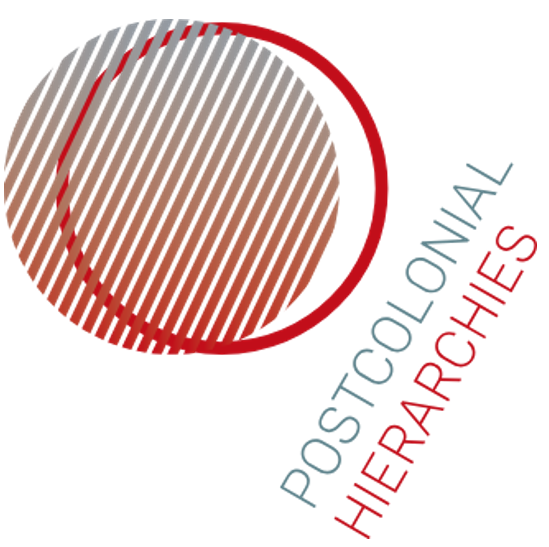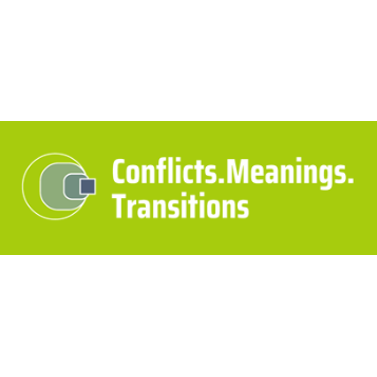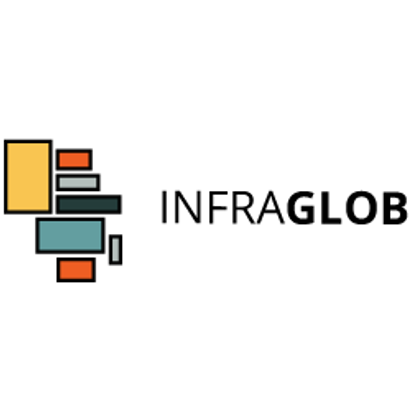Research
As the central coordination point for Africa and the African Diaspora at the University of Bayreuth, the IAS bundles and coordinates research in these areas. Research is primarily carried out within the Africa Multiple Cluster of Excellence, but also by individual IAS members. This section gives viewers an opportunity to explore a large number of projects currently undertaken by IAS members.
Current Research Projects of the Africa Multiple Cluster of Excellence
Research Section AFFILIATIONS
- When the Law is not Enough: Tackling Intractable Problems of Human Rights – Prospects for Integrated ApproachesHide
-
The project focuses on three intractable problems of human rights, which are child labour, human trafficking, and the protection of LGBTQI+ rights, so defined because of the seeming impossibility to resolve them. This project interrogates the question of why despite the establishment of extensive legal frameworks across Africa, some human rights violations persist with little or no change.
- Research Section: Affiliations
- Project duration: September 2021 - September 2025
- More Information
Project Team
- Prof. Dr. Thoko Kaime - University of Bayreuth, Germany
- Prof. Dr. Uchenna Okeja - University of Rhodes, South Africa
- Dr. Serawit Debele - University of Bayreuth, Germany
- Dr. Raymond Frempong - University of Bayreuth, Germany
- Dr. Mitterand Okorie - University of Rhodes, South Africa
- Isabelle Zundel - University of Bayreuth, Germany
- Gift Mauluka - University of Bayreuth, Germany
Research Section ARTS & AESTHETICS
- Beyond the Digital Return: New Heritage/s, Sustainability, and the Decolonisation of Music Archives in South Africa, Kenya, and GhanaHide
-
Beyond the Digital Return researches repatriation/restitution and re/appropriation of submerged but now digitally accessible musical and cultural material. The significance of the relatedness of “digital return” to processes of heritage and identity production as well as the decolonisation of institutional music archives/repositories are investigated in three African countries: South Africa, Kenya, and Ghana, with affiliated research in Nigeria.
- Research Section: Arts and Aesthetics
- Project Duration: January 2022 - December 2025
- More Information
Project Team
- Dr. Lee Watkins - Rhodes University, South Africa
- Prof. Dr. Tom M. Mboya - Moi University, Kenya
- Dr. Habil. Markus Coester - University of Bayreuth, Germany
- Islamic Popular Culture and Public Performance Practices: The Production, Transmission of Religious Knowledge and Creation of Cultural Identity in AfricaHide
-
Though in Africa, Islamic knowledge production and transmission is traditionally associated with male ulama in textual format (Ndzovu 2019), poetry, music and film-video have demonstrated that it could also be transmitted in an uncomplicated form, where female actors participate as well. This simplicity is evident through the production of ‘Islamic-poetry’, ‘Islamic-music’, and ‘Islamic-film video’, where the three public performance practices have established to be practical sources for relaying religious knowledge. This research project seeks to examine the role of gender, local languages and performative aesthetics in the production and transmission of religious knowledge and how subsequently the resultant popular culture creates cultural identity and sense of belonging among Muslims in Kenya, Zanzibar, Nigeria and Morocco.
- Research Section: Arts and Aesthetics (in synergy with Learning and Knowledges)
- Project Duration: January 2022 - December 2025
- More Information
Project Team
- Prof. Dr. Hassan J. Ndzovu - University of Eldoret, Kenya
- Dr. Musa Ibrahim - Kwame Nkrumah University of Science and Technology, Ghana
- Prof. Dr. Britta Frede - University of Bayreuth, Germany
- Dr. Suleiman Chemba - Bomet University College, Kenya
- Mohammed Mwarandu Ndaro - Moi University, Kenya
- Sumaiya Yunus Mwamzandi - Moi University, Kenya
- Dr. Mwanakombo Mohammed - Moi University, Kenya
Research Section KNOWLEDGES
- African Knowledges and the History Publication since the 1970sHide
-
Heightened turmoil in the realm of global knowledge production has recently stimulated questions leading to research on inequalities and relationalities within the university; between universities in the “Global South” and “Global North”; as well as between experts and non-experts in a given society. The Junior Research Group “African Knowledges and the History Publication since the 1970s” suggests that the discipline of (African) History, with its sustained contestations over who qualifies as the ideal narrator of the past; what qualifies as a “proper” primary source; the conceptualisation time; and the politics of the archive, to name some examples, presents a particularly rich foundation for exploring this landscape.
- Research Section: Knowledges
- Project Duration: July 2021 - December 2025
- More Information
Project Team
- Dr. Cassandra Mark-Thiesen - University of Bayreuth, Germany
- Edidiong Ibanga - University of Bayreuth, Germany
- Luisa Schneider - University of Bayreuth, Germany
- Ololade Edun - University of Bayreuth, Germany
- Felix Ampoma - University of Bayreuth, Germany
- The Socio-Political Thoughts of OrunmilaHide
-
This project engages in a relational study of the Ifa indigenous knowledge system as practised amongst the Yoruba-African people home and diaspora in Nigeria, Benin and Brazil; targeting thoughts about the state, governance system, constitution, justice, equality, equity, citizenship, nationalism, environment, gender, sexuality, global justice and other central socio-political discourses that derive there from. This is considered a potential foundation for new theoretical and methodological heritages that are based on African epistemological and metaphysical axioms which, in practical terms, can augment efforts towards addressing the ever-complex socio-political challenges across the globe.
- Research Section: Knowledges
- Project Duration: February 2021 - May 2025
- More Information
Project Team
- Prof. Dr. Olukayode Segun Eesuola - University of Lagos, Nigeria
- Prof. Dr. Olumuyiwa Falaiye - University of Lagos, Nigeria
- Colonial Commodities – Entanglements in German and Cameroonian HistoryHide
-
The project examines the multimodal relationalities of German colonial history and their aftermath in Germany and Cameroon. German industrialization, colonization, media of mass culture and African plantation economy, enslavement and infrastructures of transport are deeply intertwined. Their historical entanglements are discussed by focusing on two exemplary cases of ‘colonial commodities’, each of which is associated with different practices of power and knowledge: Cocoa/Chocolate and Cinchona/Quinine.
- Research Section: Knoweldges
- Project Duration: January 2022 - December 2025
- More Information
Project Team
- Prof. Dr. Christine Hanke - University of Bayreuht, Germany
- Prof. Dr. Ulrike Bergermann - University of Braunschweig, Germany
- Prof. Dr. David Simo - University of Yaoundé I, Cameroon
- Prof. Dr. Martin Elouga - University of Yaoundé I, Cameroon
- Dr. Constantin Tayim Sonkwe - DAW/University of Yaoundé I, Cameroon
- Dr. Salamatou - DAW/University of Yaoundé I, Cameroon
- Dr. Leah Gerfelmeyer - University of Bayreuth, Germany
- Nicolai Duken, University of Bayreuth, Germany
Research Section LEARNING
- Multilingual African Learning Spaces: Translanguaging Practices in Kenyan SchoolsHide
-
Africa’s linguistic and cultural diversity constitutes both a challenge and a resource for the creation of learning spaces. Recent research has focused on the translanguaging of multilingual speakers who use their full linguistic repertoires, including features from multiple languages to meet communicative and academic needs in their languages (cf. Garcia 2009, Garcia & Li 2014, Hamman 2018). Our focus country, Kenya, has a highly diverse linguistic repertoire using English, Kiswahili, 43 local languages, and Sheng, an urban mixed variety. We want to find out how these languages coexist in formal educational spaces, especially because English is the stipulated language of instruction in Kenya from grade four to higher education.
- Research Section: Learning
- Project Duration: July 2022 - February 2025
- More Information
Project Team
- Prof. Dr. Susanne Mühleisen - University of Bayreuth, Germany
- Dr. Billian Khalayi Otundo - University of Bayreuth, Germany
Research Section MOBILITIES
- The political economy of monetary and economic sovereignty in West Afirca comparedHide
-
The research group investigates historically and in comprative fashion how Senegal, Côte d'Ivoire, Ghana and Nigeria have attempted to increase their political and economic sovereignty with a particular focus on the interaction between governments, finance and labor. The group attempts to find out historically how these West African countries became exporters of only one or two commodities with the help of foreign capital and military force. In the second step, we focus on how postcolonial, newly independent governments have attempted to move away from this with the help of domestic resources, the creation of public and private banks, foreign debt and, most recently, stronger relations to China since independence.
- Research Section: Mobilities
- Project Duration: July 2021 - December 2025
- More Information
Research Team
- Dr. Habil. Kai Koddenbrock - University of Bayreuth, Germany
- Isaac Abotebuno Akolgo - University of Bayreuth, Germany
- Carla Coburger - University of Nairobi, Kenya
- Caroline Cornier - University of Bayreuth, Germany
- Hanna Eid - University of Bayreuth, Germany
Research Section MORALITIES
- Health discourses as moral communication? Linguistic case studies from Côte d'Ivoire and CameroonHide
-
The project investigates manifestations of ethics or morality – two concepts we use interchangeably – in everyday talk by zooming in on health communication in Cameroon and Ivory Coast. It draws on constructivist and phenomenological conceptualizations of ethics by assuming that there are no moral phenomena as such, but that ethics is intimately tied to interaction.
- Research Section: Moralities
- Project Duration: September 2019 - March 2025
- More Information
Research Team
- Prof. Dr. Martina Drescher - University of Bayreuth, Germany
- Dr. Oumarou Boukari - University of Bayreuth, Germany & University of Bouaké, Ivory Coast
- Dr. Jean-Benoit Tsofack - University of Dschang, Cameroon
- Laura Guadagnano - University of Bayreuth, Germany
- Adama Drabo - University of Bayreuth, Germany
- Politics of the Unknown. Conspiracism and ConflictHide
-
The Junior Research Group “Politics of the Unknown. Conspiracism and Conflict” revolves around the question of how political conflicts shape, and are shaped by, different perceptions of truth and reality. The project consists of several case studies zooming in on contexts of particular uncertainty.
- Research Section: Moralities
- Project Duration: March 2021 - December 2025
- More Information
Project Team
- Dr. Joschka Philipps - University of Bayreuth, Germany
- Saïkou Oumar Sagnane - University of Bayreuth, Germany
- Kingsley Celestine Joma - University of Bayreuth, Germany
- Bilal Sow - Cinematographer, Conakry, Guinea
- Aurélien Gillier - Photographer, Bordeaux, France
- Sékou Oumar Thiam - Sculptor and Painter, Conakry, Guinea
- Ams Keushe - Rap Artist, Fria, Guinea
- Dr. Odile Goerg - University of Paris Diderot, France
- Dr. Bano Bary - University of Conakry-Sonfonia, Guinea
- Dr. Tuline Gülgönen
- Paul Schweiter - Critical Cartographer, Basel, Switzerland
- Fluid Ontologies of Contestation. Social media, anti-government protest and transnational decolonization movements in Burkina FasoHide
-
“Fluid Ontologies of Contestation” studies how contemporary political contestation is co-constituted by online and offline processes of mobilization. It focuses on two key cases in Burkina Faso: the 2014 revolutionary uprisings against then-President Blaise Compaoré and the ongoing calls for decolonization, notably from France, in the context of the Sahel crisis. The interdisciplinary project combines social science and computer science methodologies to study the role of social media networks in collective movements that challenge established power relations on the national and transnational level.
- Research Section: Moralities
- Project Duration: January 2023 - December 2025
- More Information
Project Team
- Dr. Yacouba Banhoro - University Joseph Ki-Zerbo Ouagadougou, Burkina Faso
- Dr. Cyriaque Paré - Institut des Sciences des Sociétés Ouagadougou, Burkina Faso
- Dr. Joschka Philipps - University of Bayreuth, Germany
- Prof. Dr. Mirco Schönfeld - University of Bayreuth, Germany
- Beatrice Kanyi, M.A. -University of Bayreuth, Germany
- Armel Zebro, M.A. - University Joseph Ki-Zerbo Ouagadougou, Burkina Faso
Current Research Projects of other IAS Members

Postcolonial Hierarchies in Peace and Conflict
The Network Postcolonial Hierarchies in Peace and Conflict is a collaborative project of the Arnold-Bergstraesser-Institute (Freiburg), the Center for Conflict Studies at the Philipps University Marburg, the University of Bayreuth, and the University of Erfurt. It is an interdisciplinary research initiative funded by the German Federal Ministry of Education and Research (BMBF). The Network investigates how historically formed postcolonial hierarchies manifest themselves in contemporary conflict dynamics and what implications this has for sustainable conflict transformation in the future. To do so, the Network brings together historical perspectives on the contexts of conflict formation (in particular those shaped by colonialism) with postcolonial research perspectives as well as with methodologies and theories of peace and conflict research. ...more

Conflicts.Meanings.Transitions
When tyranny ends, when societies come to terms with their past, when values change, people contest what these transitions mean. How these interpretational struggles unfold is essential for societal peace in the present and future. In the research network Conflicts.Meanings.Transitions we examine such contestations from an interdisciplinary perspective. In particular, we focus on meaning struggles over peace strategies by non-state actors, over violence, and over universal rights and diversity. ...more

INFRAGLOB - Africa's Infrastructure Globalities, Rethinking Political Geographies from the Global South
The project aims to offer a new understanding of the making of infrastructure globalities. Observing infrastructure sites, we analyze how emerging powers challenge established theories and practice of international relations.Employing an innovative integrative methodology, the project generates new empirical knowledge on South-South relations over infrastructure projects. At the core is a practice-theoretical account of change involving Africa, China, and other Southern actors. Thereby, we will open new conceptual horizons for the making of multiple globalities. ...more.


